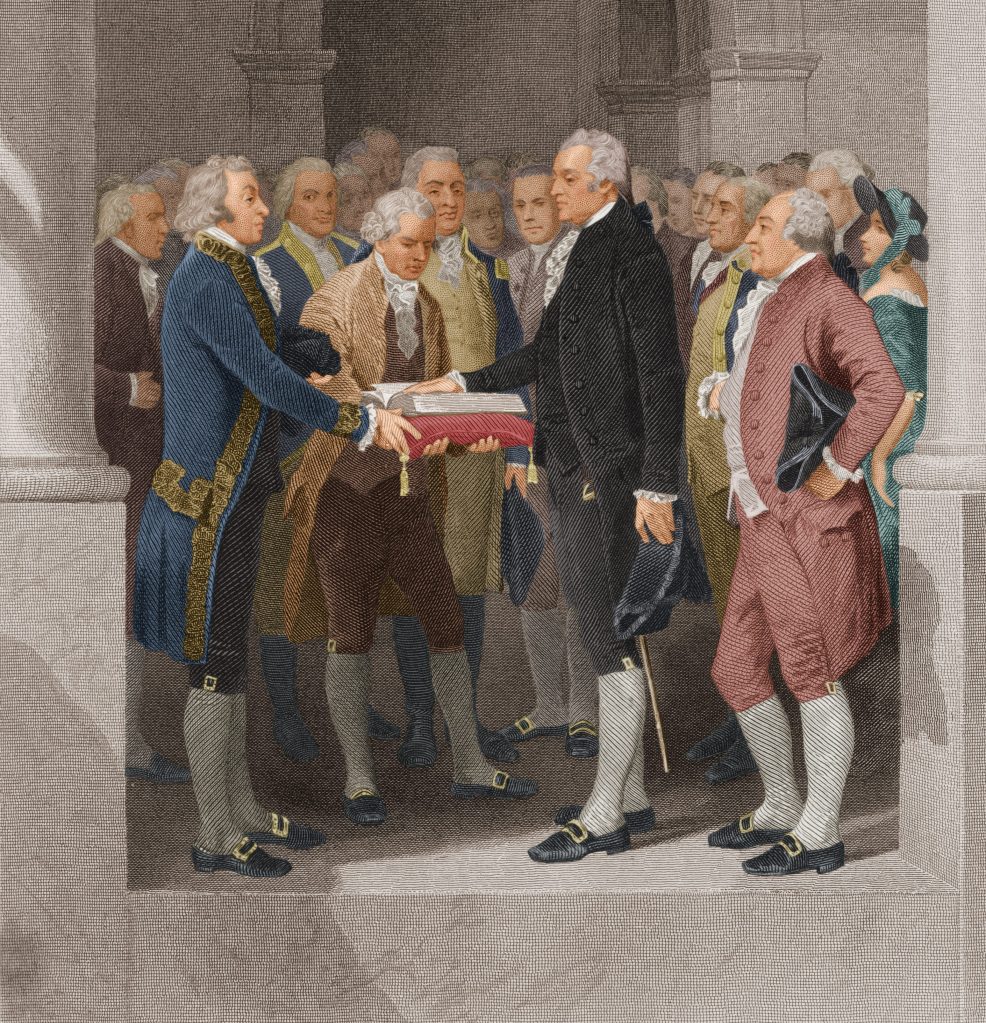The best way to understand leadership is to understand leaders. And there isn’t a better time to do it than when a nation inaugurates a new leader, as the US did this week.

When I taught Executive Communication as a Leadership Tool at a US university, the syllabus mixed leadership theory, principles, ideas, case studies, and so forth with a strong focus on the most important leadership skill of all: communication.
One of the books we used was George Washington’s Leadership Lessons by the late James C. Rees, long-time executive director of George Washington’s estate at Mount Vernon, VA.
We used this book for two reasons. First, I’d reviewed more leadership textbooks than I can remember, and in my opinion, there’s no such thing as a great leadership textbook. There are plenty of great books on plenty of great leaders, but great leadership textbooks? Not so much.
“Leadership cannot be taught.”
Harold Geneen, one of America’s iconic business leaders of the 20th century said, “Leadership cannot be taught; it can only be learned.” Was he ever right.
But reading books about – or by – leaders is far more impactful than books on leadership. The way to understand leadership is not through a textbook; it’s by understanding leaders.

Skills or Characteristics?
What makes this book and its lessons so relevant is, well, let’s save that answer for a moment. Let’s set it up by asking what characteristics are critical for a successful leader.
The answer, when you read Rees, is as clear as day. Let’s first look at the fifteen specific leadership lessons Rees derives.
“Your true value as a leader is not about how well you do your job; it’s about how well you inspire others to do theirs.”
Eli Amdur
A leader (1) has vision, (2) is honest, (3) has ambition, (4) is courageous, (5) has self-control, (6) takes personal responsibility, (7) is determined, (8) has a strong work ethic, (9) uses good judgment, (10) learns from mistakes, (11) is humble, (12) does the research and development, (13) values presentation, (14) exceeds expectations, and (15) has heartfelt faith.
Leadership is about “soft skills.”
OK, no argument with any of them, but what’s the big picture? When you take the 30,000-foot view, it’s easy to see.
Not one of these lessons has anything to do with technical skills, or “hard skills” as we call them. They are all either personal traits or “soft skills.” Every one of them. Not one of them depends on how skilled a biologist or accountant or shortstop or surgeon you are. They are all about the kind of person you are.

In other words, leadership roles, functions, or opportunities go to leaders, not necessarily to people who run a regression analysis or build a building or analyze a spreadsheet better than everyone else. , you have to be good at what you do, but your leadership path begins where your functional trail leaves off.
When I was appointed to teach my first course, I thought it might be a good idea to develop a pertinent working definition of a leader. Not finding one to my satisfaction anywhere, I took it as my responsibility to develop one, which was later augmented. Here it is.
“A leader is someone who has – and articulates – a vision, creates change, and inspires others to reach mutual goals while creating more effective working relationships – all while setting the highest standards of ethical thought and behaviour.”
Once again, there’s nothing technical about it – no “hard skills” in there. Your true value as a leader is not about how well you do your job; it’s about how well you inspire others to do theirs.
And in America, there is a chance to prove that – every four years.
This story was originally published on forbes.com and all figures are in USD.
Look back on the week that was with hand-picked articles from Australia and around the world. Sign up to the Forbes Australia newsletter here or become a member here.


